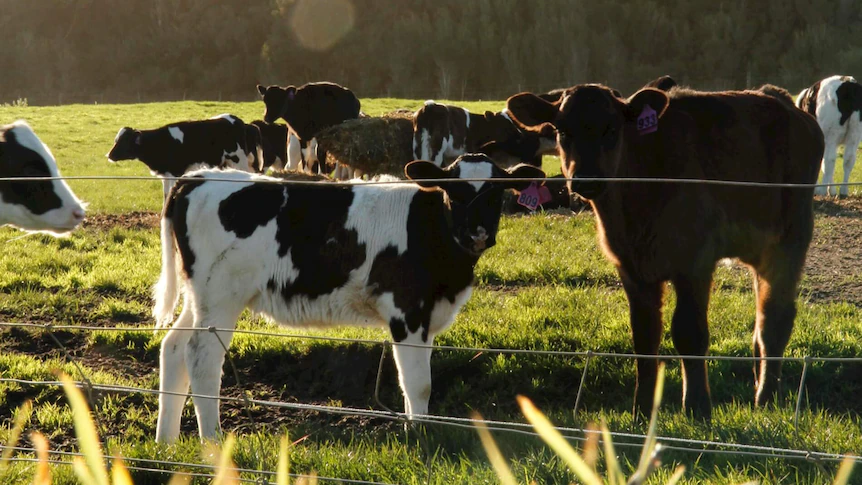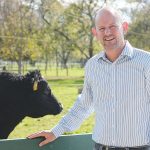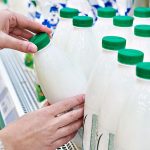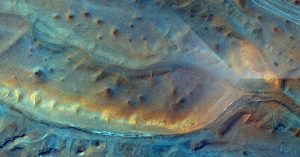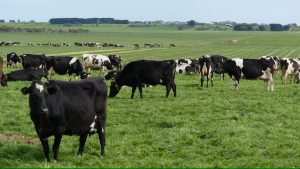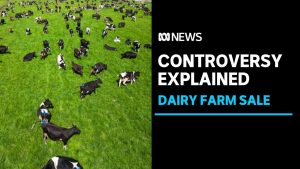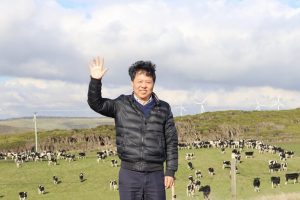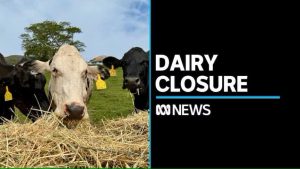
Key points:
The local mayor says the process to fix effluent issues at the Chinese-owned Van Dairy farming operation has been “slower than we hoped”
The EPA started a joint investigation with the council in April, to ensure the effluent issues were being rectified
Van Dairy Group has sold more than a dozen farms in three separate transactions since the effluent issues came to light
An Environment Protection Authority (EPA) audit of farms owned by Van Dairy Group found actions to fix effluent management problems at some of its farms, in the state’s north-west, had not been completed.
Those fixes were required after Van Dairy Group had an operating licence suspended at one of its farms earlier this year, following a damning Tasmanian Dairy Industry Association (TDIA) audit.
The EPA started investigating effluent management at Van Dairy’s farms in April to ensure the company was complying with nine environment protection notices issued against it by the Circular Head Council.
An EPA spokeswoman said the audit found there were “outstanding corrective actions relating to management infrastructure and long-term effluent management plans that were not finalised”.
“The EPA has advised Van Dairy Limited that it intends issuing its own Environment Protection Notices on a number of the farms to ensure that Van Dairy Limited is complying with its general environmental duty to manage dairy effluent,” the spokeswoman said.
The spokeswoman said the EPA would not publicly release the names or number of farms the notices would apply to until they were issued.
The TDIA’s February audit raised a series of issues with effluent systems at Van Dairy’s farms, including a failure to maintain and clean out systems, unqualified people working on them and a lack of infrastructure.
Van Dairy has since broken up what was Australia’s largest dairy operation in recent months, selling 12 farms — including 11 to investment group Prime Value — in May.
It also recently sold 6,000 hectares of land inside the Woolnorth farm gates to TRT Pastoral Group.
Circular Head Mayor Daryl Quilliam said the process to fix the effluent issues at the farms had been “slower than we hoped”.
“It would have been much better if it would have been all completed and signed off already but that hasn’t happened yet,” he said.
“I know there’s been a lot of work that VDL has done, and they’re still doing some work on it, but the EPA are the guys that are working on it now and hopefully it will soon come to a conclusion.”
Greens senator Peter Whish-Wilson said he was “very disappointed and frustrated” that the issue had not been resolved almost a year after it first emerged.
“Van Dairy has been selling properties to raise capital and we were optimistic that capital would be reinvested back into infrastructure on these farms to fix the effluent management problems and fix them for good, and clearly that hasn’t happened yet,” he said.
Senator Whish-Wilson said the EPA should consider altering Van Dairy’s permit conditions or cancelling licences.
“Speaking on behalf of all Tasmanians, I think we’d be very disappointed if there weren’t penalties applied,” he said.
“I totally understand why you’d want to take a constructive approach to this and work with the company to get these effluent treatment systems to a level where they’re good enough for the environmental standards and the local ecosystem.
“But if that constructive approach doesn’t work, clearly the EPA needs to come down on them like a tonne of bricks.”
In a statement on Tuesday, Van Dairy’s managing director Xianfeng Lu said the company “takes its environmental responsibilities very seriously and is committed to working with the EPA to resolve all issues as soon as possible”.
On Monday, when announcing the latest land sell-off of farmland to TRT, Mr Lu said the sale funds would be reinvested into the remaining farms.
“My goal is to build a high-quality international dairy company and I remain committed to this outcome,” Mr Lu said on Monday.
